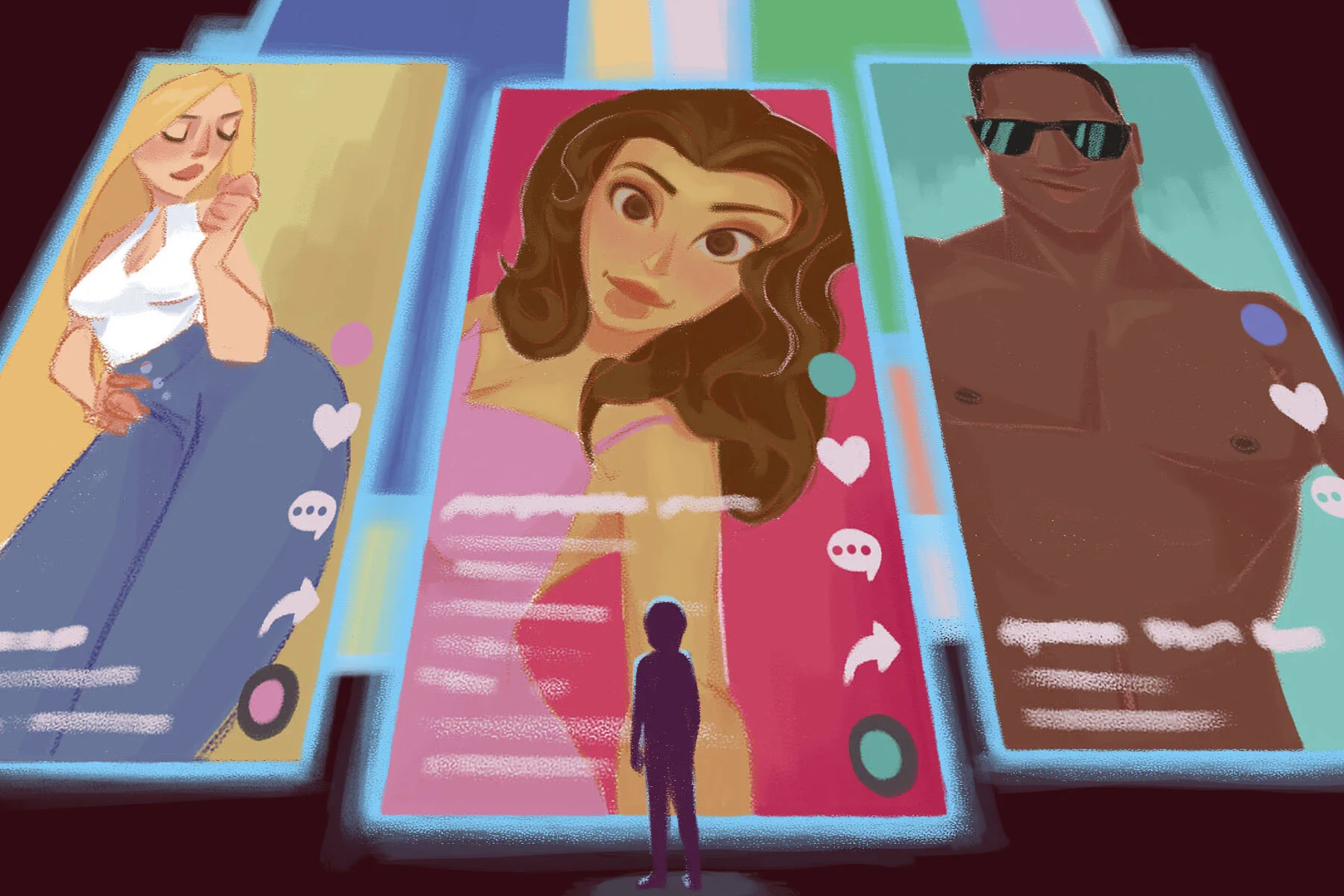Tik Tok’s True Colors: From a Teen’s Perspective
by Anabelle Baum
“No way will I EVER download Tik Tok. I don’t like dancing at all and have no interest in making videos. It’s just not my thing.”
But less than 48 hours later, I was convinced; if I didn’t download the app, I would remain oblivious to the Tik Tok related jokes and references my friends kept making. So, why not download the app? What was the harm?
Yep, big mistake.
Tik Tok is a short-term video app owned by a Chinese internet company called ByteDance known for its viral dances, short skits, and, generally, just kids goofing off. The platform has 800 million active users and 1.9 billion downloads worldwide, becoming one of the most popular forms of social media for teens and Generation Z.
Since downloading the social media platform, I have found myself with the same morning and nightly routine: scroll through Tik Tok for a laugh, either to chuckle at Brendan Balaskovitz while he dances with his pet duck, observe Jason Derulo as he makes popcorn, or watch a random teen prank her boyfriend. But to get to the fun Tik Toks, I also find myself scrolling past many toxic ones.
One of the first videos to pop up on my for-you page (the landing space where users open the app to find recommended and populated videos) was of a young girl’s “what I eat in a day.” I clicked the seemingly innocent video and was immediately shocked. The video collage was all of five seconds with the meal plan totaling just under a couple hundred calories. But what caught my attention was the caption: “This is how I stay healthy.” I was enraged, to say the least. Not only was this creator making girls self-conscious of what they ate, which was how I felt at the moment, but she was normalizing an extremely unhealthy and dangerous lifestyle to other young users.
“Tik Tok did absolutely nothing to stop teens from consuming the drops. Instead, they censored their platform in all the wrong places.”
Unfortunately, this form of fake news is not unknown to the app. In February 2020, Rae metabolism drops were the new viral thing on Tik Tok. While the brand did not overtly claim that the drops would boost their customers’ metabolisms, the millions of videos posted on Tik Tok that credited the drops for weight loss were enough to send users into a frenzy. Teens even started to overuse the drops to the extent that they were then recalled at Target.
But I am not here to shame teens. I am one too, and I genuinely understand the hype around the metabolism drops despite there being no scientific evidence to back them up. I have struggled with my body-image and know it isn’t just me, with statistics showing nearly 50 percent of teenage girls using unhealthy weight control behaviors in their lifetimes. The situation with the Rae drops made it impeccably clear that people are fast to believe anything they see on social media, especially if they are already in a vulnerable state of mind. When the whole situation was going down, Tik Tok did absolutely nothing to stop teens from consuming the drops. Instead, they censored their platform in all the wrong places.
“Attempt to recognize that a video is just a video; fight the urge to give it any power.”
Social media platforms have often faced accusations of unfairly censoring women’s bodies. But there have been conclusive reports where TikTok moderators admit they were instructed to hide videos that featured unconventionally attractive people. These traits included “Abnormal body shape,” “ugly facial looks,” dwarfism, and “obvious beer belly,” “too many wrinkles,” “eye disorders,” and the list continues. Even Lizzo, the American body-positive singer, spoke out against the bias within the Tik Tok algorithm, explaining that the videos of her dancing in her bikini got taken down despite not violating any guidelines.
So, here is my piece of advice: When you come across something questionable just fact check; you have the power to do so in just one google search. When you scroll through your for-you page and see a girl being put down, give her compliment; she may have needed it. If a Tik Tok triggers you, scroll past it, report it, or better yet, attempt to recognize that a video is just a video; fight the urge to give it any power.
Now go watch Brendan Balaskovitz dance with his duck. I highly recommend it.
Works Cited:
“What Is TikTok? - The Fastest Growing Social Media App Uncovered.” Influencer Marketing Hub, 26 Oct. 2020.
Claire Gillespie. “What to Know About This Weight Loss Supplement Going Viral on TikTok.” Health.com, 03 March 2020.
Fowler, Geoffrey. “Perspective | Is It Time to Delete TikTok? A Guide to the Rumors and the Real Privacy Risks.” The Washington Post, WP Company, 13 July 2020.


